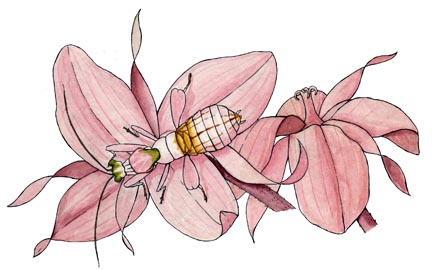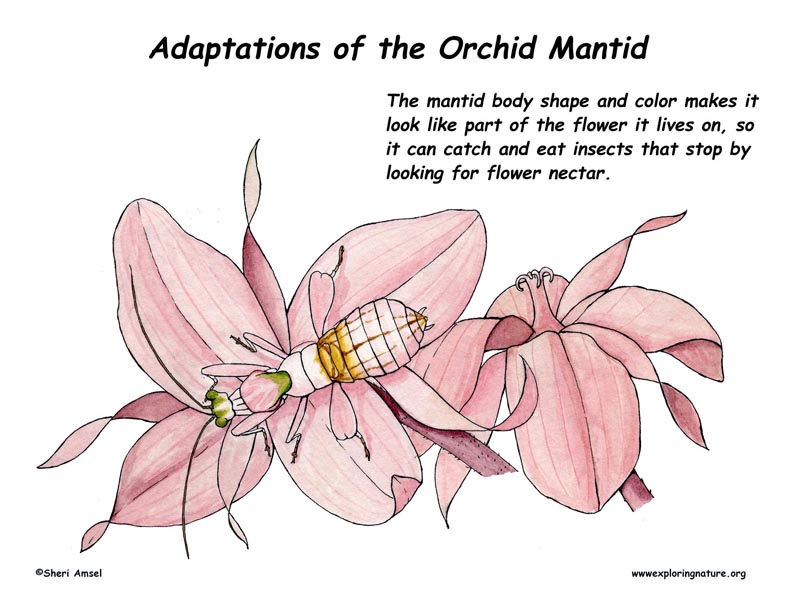

Adaptation in a population of living things happens as a result of an adaptive trait. This is any inheritable trait that increases its survival rate so that it can live longer, reproduce longer, and have more offspring (that also have that trait). Adaptive traits can improve an animal's ability to find food, make a safer home, escape predators, survive cold or heat or lack of water.
The orchid mantis is an insect that has camouflage as its adaptive trait. It looks just like a flowering orchid found in the rainforest. Instead of chasing prey, it sits very still on the bloom of the orchid and waits for prey to come to it. When an insect lands on the flower to collect nectar, the mantis grabs it with lightning speed and quickly eats it. This same stillness and camouflage hides the orchid mantis from predators. These physical and behavioral adaptations help the ochid mantis survive in its habitat.
For Discussion and Critical Thinking:
The orchid mantis has adaptive traits that help it survive in its rainforest habitat.
1. Name two of the orchid mantis’s adaptive trait and how they help it survive:
2. Name two other insects from your yard, local parks or wild areas (forests, prairies, wetlands, mountains, etc.) that have a similar adaptive trait that helps them survive.
3. Name two other animals that are not insects, that use this adaptive trait to help them survive.
When you research information you must cite the reference. Citing for websites is different from citing from books, magazines and periodicals. The style of citing shown here is from the MLA Style Citations (Modern Language Association).
When citing a WEBSITE the general format is as follows.
Author Last Name, First Name(s). "Title: Subtitle of Part of Web Page, if appropriate." Title: Subtitle: Section of Page if appropriate. Sponsoring/Publishing Agency, If Given. Additional significant descriptive information. Date of Electronic Publication or other Date, such as Last Updated. Day Month Year of access < URL >.
Amsel, Sheri. "Adaptations of the Orchid Mantis" Exploring Nature Educational Resource ©2005-2024. December 14, 2024
< http://www.exploringnature.org/db/view/Adaptations-of-the-Orchid-Mantis >

